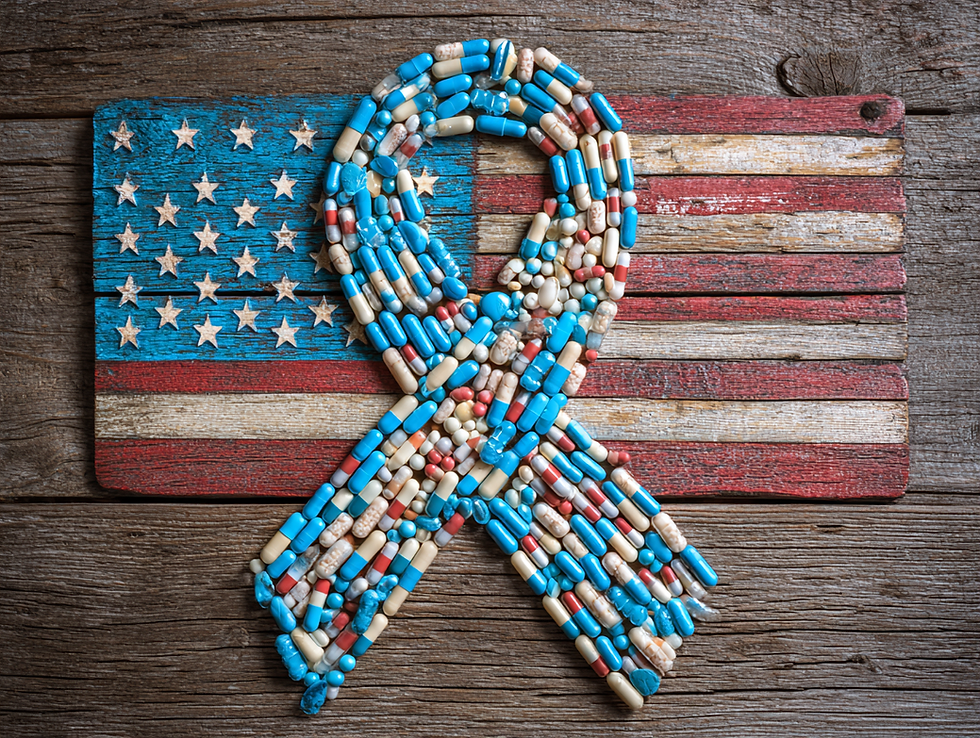Understanding Opioid Addiction: Dispelling Myths, Inspiring Hope
- Opioid Awareness Foundation

- Jul 25
- 2 min read

💊 What Is Opioid Addiction, Really?
Opioid addiction—also known as opioid use disorder (OUD)—is not a lack of willpower.
It’s not a moral failure.
It’s not a choice people want to make.
It’s a chronic, relapsing medical condition that alters brain chemistry, hijacks the reward system, and makes it incredibly hard to stop—even when a person desperately wants to.
Whether the opioid was prescribed for pain, taken recreationally, or introduced by a trusted friend, the end result can be the same: dependency, shame, withdrawal, and a vicious cycle that feels impossible to break.
But here's the truth—recovery is not only possible, it’s happening every day.
🧠 How Addiction Works in the Brain
Opioids bind to receptors in the brain that control pain and emotion. When taken repeatedly, these drugs retrain the brain’s reward system, creating intense cravings and reducing the ability to feel pleasure from anything else—like food, relationships, or joy.
Over time, more opioids are needed to feel "normal," and stopping suddenly causes painful withdrawal symptoms—both physical and emotional.
This isn’t about weakness.
This is about biology.
❌ 5 Dangerous Myths About Opioid Addiction
Let’s break down some of the most damaging lies people still believe:
“People choose to be addicts.”➤ No one chooses to develop a chronic disease. Addiction often begins with pain—physical or emotional.
“You can quit if you really want to.”➤ Willpower is not enough. Just like diabetes or asthma, addiction requires treatment, support, and often medication.
“It’s only a problem for ‘junkies’ or homeless people.”➤ Addiction affects doctors, teens, athletes, moms, pastors, veterans—every race, age, and class.
“Using Suboxone or Methadone is replacing one drug with another.”➤ Medication-Assisted Treatment (MAT) is clinically proven to reduce relapse and overdose. It’s not trading—it’s treating.
“They’re beyond help.”➤ No one is too far gone. Healing is always possible—with the right tools and community.
🙌 Real Recovery Is Possible
Recovery doesn’t look the same for everyone. For some, it involves therapy and medication. For others, it includes faith-based programs, support groups, holistic healing, or all of the above.
What matters is connection, compassion, and consistency. No one heals in isolation.
That’s why at the Opioid Awareness Foundation, we’re committed to:
Hosting community outreach events to reduce stigma
Offering creative programs like music, fitness, and art therapy
Partnering with influencers and educators to spread real, relatable information
Supporting families and youth with the tools they need to break cycles early
🕊️ If You’re Struggling (Or Love Someone Who Is)...
➤ You are not alone.➤ You are not broken.➤ You are not beyond hope.
Reach out. Ask questions. Learn more. Whether it’s day one or day one-hundred, you are worthy of healing.
Because the more we understand addiction, the more power we have to end it.
📢 Let’s Talk About It
Help us break the silence by sharing this post, starting a conversation, or joining one of our upcoming events. Together, we can replace stigma with support—and pain with purpose.
Addiction thrives in darkness. Awareness brings light.




Comments